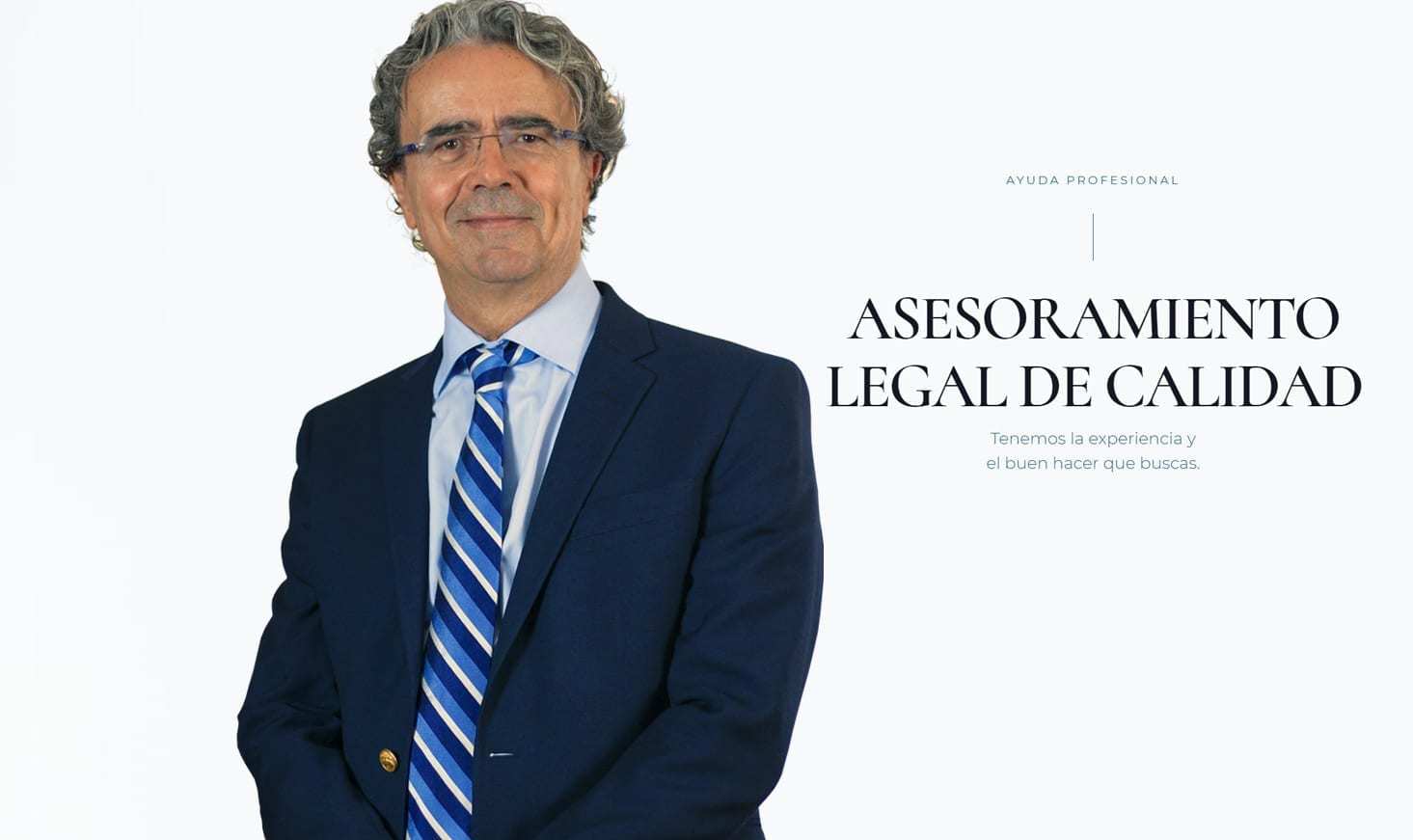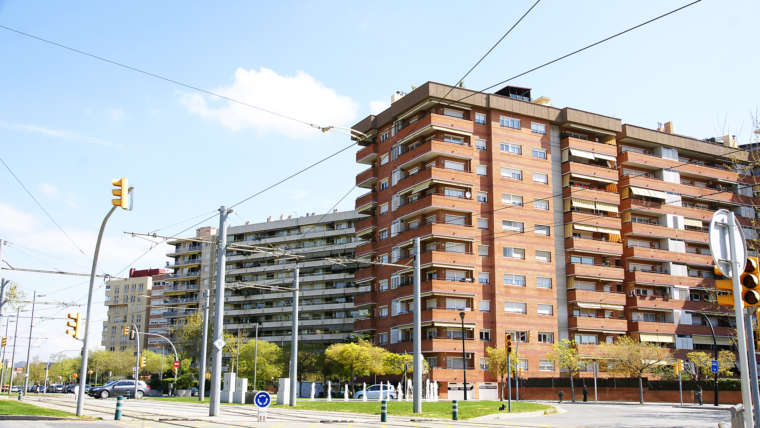HORIZONTAL PROPERTY
Welcome to the first article in our series dedicated to a fundamental subject: horizontal property. In this series, we will explore in depth the various legal and practical aspects of horizontal property, starting with its context and development in Spain. Join us on this journey to better understand this crucial aspect of real estate law.
HORIZONTAL PROPERTY IN SPAIN
Horizontal property is one of the legal regulations of most interest to homeowners in Spain, and one that is the subject of almost daily questions.
For this reason, we thought it would be useful to publish this succinct article which briefly deals with the essential questions in order to give an idea of this legal figure.
Do not hesitate to contact Carlos Baño’s law firm in Alicante if you want more information.
WHAT IS HORIZONTAL PROPERTY?
This is the name given to the co-ownership or community in joint ownership of common elements that serve for the independent use and enjoyment of flats and premises, whether in vertical buildings or in single-family dwellings, provided that apart from their own construction elements, they have in common some common elements that serve for the enjoyment of flats and premises.
The characteristic feature is that private property is enjoyed together with construction elements which are co-ownership and which are necessary for the construction of the building, or to enjoy elements of enjoyment, beyond the private property.
The Horizontal Property has its basis and origin in the figure of the Community of Goods that regulates the Civil Code in its article 392, being of special importance the description for merely enunciative purposes of what are the common elements that it contemplates, in article 396 of the mentioned Legal Text.
As its own legal regulation, it is Law 49/60 of 21 July which develops in a fairly exhaustive manner everything related to this legal figure of transcendental importance.
Do not hesitate to consult with Spanish lawyer Carlos Baño León, who will clarify all your doubts.
COMMON ELEMENTS IN JOINT OWNERSHIP IN SPAIN
A phenomenon of modern construction was the construction of dwellings that formed part of buildings that rose to the top.
These buildings are composed of a variety of architectural structural elements essential to their construction. These elements include the floor, roof, foundations and roof coverings, which form the physical foundation of the building. They also include elements such as columns, beams, floors and load-bearing walls, which provide stability and structural support.
Frontages are another integral part of these buildings, comprising external cladding of terraces, balconies and windows, together with the enclosing elements that form them and their external cladding. The doorway, stairways, porches, corridors, passageways, walls, pits, courtyards and shafts are common areas that facilitate circulation and access within the building.
In addition, this includes enclosures for lifts, storage rooms, counters, telephony and other common services or installations, including those for private use. This includes installations and ducts for the supply of water, gas or electricity, as well as systems for the use of solar energy, domestic hot water, heating, air conditioning, ventilation or smoke evacuation.
Also considered are installations for fire detection and prevention, electronic door entry, building security, collective aerials and other installations for audiovisual or telecommunication services.
In summary, horizontal property encompasses a wide range of physical components and systems that contribute to the functioning and comfort of residential and commercial buildings.
These constructive elements do not belong to any of the co-owners in particular, but to the whole, since their purpose is to allow the use and enjoyment of the flats and premises independently, and that is why they have nothing to do with the flats or private elements that are private property for the use and enjoyment of their owner.
Therefore, the Horizontal Property Law comes to regulate the functioning of the community that is created with these common elements and that therefore belong in common to the owners.
As they belong to the community, and therefore to all the co-owners, the common elements are beyond the scope of disposition of individuals and only the Community can deal with them with different votes depending on what they are.
We have already seen that they are considered common elements according to the Law, but this enumeration is not numerus clausus, so that the configuration of common element that is not described can be understood as any other element that does not appear as private.
There are many judicial questions that arise as a result of whether or not it is a common element, but this is beyond the scope of this article.
Do not hesitate to consult with Spanish lawyer Carlos Baño León if you have any questions.
UNAVAILABILITY OF SUCH ASSETS EXCEPT BY UNANIMOUS AGREEMENT OF THE CO-OWNERS IN SPAIN
As with the coefficients of participation in common expenses, the common condition of an element, as opposed to the particular elements, can only be modified by unanimous agreement of the Meeting of Owners, which can establish the private nature of a property which was originally a common element.
Apart from this unanimous agreement, it is not possible to vary or consider a common element in a different way.
CONSTITUTION. DEED OF DECLARATION OF NEW CONSTRUCTION IN SPAIN.
The constitutive title of the Horizontal Property is the deed of Declaration of New Construction that the owner of the building registers in the Land Registry, registering the building and all its components, before proceeding with the sale of the flats and premises.
From then on, the building is registered in the Land Registry as a registered property and then each of the private components, as they are sold, will be registered as independent properties.
In the title deed, each property must have its own contribution coefficient to the community expenses, as well as in this deed the Community of Owners will be considered to be created and constituted and statutory rules of obligatory compliance may be established.
In the deed of Declaration of New Construction, the common elements are usually fixed or established in detail, hence the deed is an obligatory reference to be taken into account in the life of the Community of Owners.
BYLAWS
The deed of Declaration of New Construction, which serves as the title deed of the Community of Owners, usually includes a private statute of great importance. This statute has as its main objective to facilitate the coexistence between the co-owners from the very beginning.
It is essential to bear in mind that this private statute cannot prejudice third parties unless it is duly registered in the Land Registry.
Therefore, its regulation in the deed of Declaration of New Construction is crucial, as this deed contains the fundamental provisions governing the constitution and exercise of rights, as well as various provisions related to the use, destination, administration and maintenance of the building, among other aspects.
Thus, the Deed of Declaration of New Construction covers a wide spectrum of regulations that advocate harmonious coexistence and efficient governance within the Community of Owners, ensuring the protection of the interests of all those involved and the proper management of the property in question.
CONTRIBUTION TO COMMON EXPENSES IN SPAIN
The contribution to the maintenance of the common elements is given by the so-called coefficient of participation which is fixed by the Developer in the deed of Declaration of New Construction when the building is built, and this coefficient is obtained, among other factors, from the number of meters that a flat or premises has in relation to the number of meters of the building.
In this way, when acquiring a property, the description of the property in the title deed shows its share in the contribution to the Community expenses or expenses for the maintenance and upkeep of the Community.
When referring to expenses, we are talking about both ordinary and extraordinary expenses.
This percentage is unchangeable, unless unanimously agreed by all the co-owners in a resolution adopted by the Owners’ Meeting.

CARLOS BAÑO LAW FIRM
In our Law Firm in Alicante we are experts in Real Estate Law, so do not hesitate to contact us if you need us.




